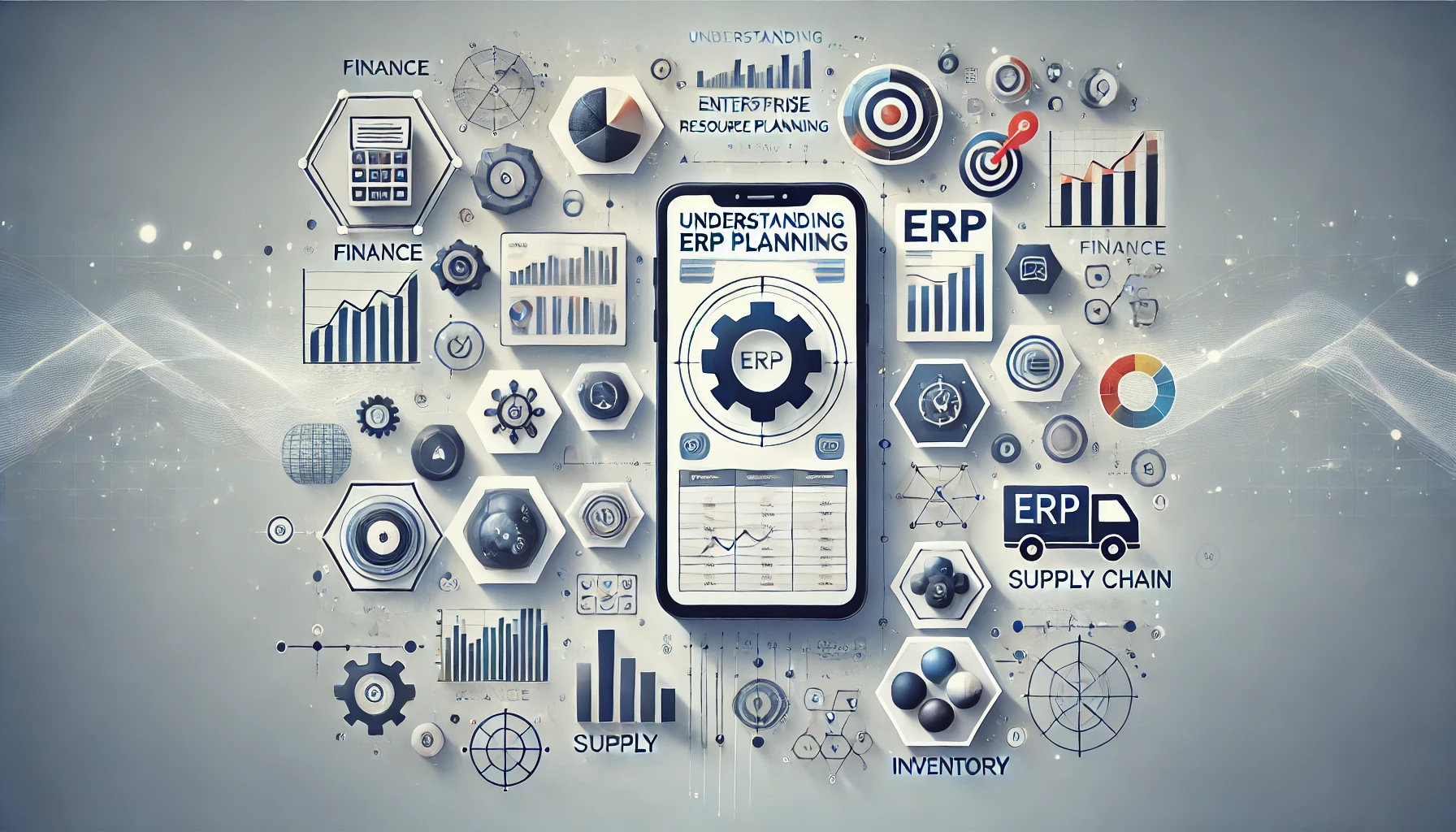In today’s fast-paced business environment, efficient resource management is essential for success. One of the most effective ways to achieve this is through https://noticviralweb.blogspot.com/2024/04/erp-planificacion.html. This process involves strategically planning the implementation of an Enterprise Resource Planning (ERP) system to optimize various business functions, from inventory management to financial operations.
Benefits of ERP Implementation
Implementing an ERP system can significantly enhance a business’s operations. The primary benefits include:
- Improved Efficiency: ERP systems automate repetitive tasks, allowing employees to focus on more strategic activities. This leads to faster processing times and improved productivity.
- Centralized Data: By consolidating data from various departments, ERP systems provide a holistic view of the organization. This enables better decision-making and strategic planning.
- Cost Reduction: Streamlining processes can lead to significant cost savings. With better inventory management and optimized supply chains, businesses can reduce waste and improve profitability.
- Regulatory Compliance: ERP systems help maintain accurate and auditable records, which are crucial for compliance with regulations, especially in industries like healthcare and finance.
Understanding these benefits is crucial when considering https://noticviralweb.blogspot.com/2024/04/erp-planificacion.html for your organization.
ERP Implementation Phases
The journey of implementing an ERP system can be broken down into several key phases:
- Planning: Identify the objectives and scope of the ERP implementation. This phase also involves selecting the right ERP solution for your business needs.
- Design: Configure the system according to your business processes. This may involve customizing workflows and defining user roles.
- Testing: Before full deployment, conduct rigorous testing to ensure the system functions as intended. This step is crucial for identifying any potential issues.
- Deployment: Roll out the ERP system across the organization. This often involves migrating data from old systems to the new ERP.
- Training: Provide comprehensive training for users to ensure they can navigate and utilize the system effectively from day one.
- Post-Implementation Support: Continuous support is essential for resolving any issues and ensuring the ERP system continues to meet business needs.
Each of these phases plays a vital role in successful https://noticviralweb.blogspot.com/2024/04/erp-planificacion.html.
Common ERP Implementation Pitfalls
While ERP implementation can bring significant benefits, several common pitfalls can hinder success:
- Inadequate Planning: Failing to define clear objectives and scope can lead to misalignment between the ERP system and business needs.
- Over-Customization: Customizing the ERP too much can complicate future upgrades and increase costs. Aim for a balance between customization and standard features.
- Ignoring Change Management: Employees may resist change. It’s crucial to implement effective change management strategies to facilitate a smooth transition.
- Underestimating Training Needs: Insufficient training can lead to user frustration and poor adoption rates. Ongoing training programs are essential.
By being aware of these pitfalls, businesses can better navigate the challenges of https://noticviralweb.blogspot.com/2024/04/erp-planificacion.html.
Key Performance Indicators (KPIs) for ERP Success
To measure the success of an ERP implementation, businesses should track several KPIs:
| KPI | Description |
| System Adoption Rate | Percentage of users actively using the ERP system |
| Data Accuracy | Percentage of accurate data entries in the ERP system |
| Process Efficiency | Time taken to complete key business processes before and after ERP implementation |
| Cost Savings | Reduction in operational costs following ERP implementation |
| Compliance Rate | Adherence to regulatory requirements and standards |
Tracking these KPIs will help organizations evaluate the effectiveness of their ERP systems and make informed decisions about further improvements.
Industry-Specific ERP Solutions
Different industries may require tailored ERP solutions. Here’s a brief overview:
- Manufacturing: ERP systems for manufacturing focus on production planning, inventory control, and quality management.
- Retail: Retail ERP solutions often emphasize inventory management, point of sale integration, and customer relationship management.
- Healthcare: Healthcare ERP systems prioritize compliance, patient management, and billing processes.
Choosing the right industry-specific ERP solution is crucial for achieving success in https://noticviralweb.blogspot.com/2024/04/erp-planificacion.html.
Future of ERP Technologies
The landscape of ERP systems is continually evolving. Here are some emerging trends:
- AI and Machine Learning: These technologies are enhancing ERP systems with predictive analytics and automation, improving decision-making and operational efficiency.
- Increased Cloud Adoption: More businesses are adopting cloud-based ERP systems due to their flexibility and remote accessibility, enabling organizations to operate from anywhere.
- IoT Integration: Integrating ERP with the Internet of Things (IoT) allows for real-time data collection and analysis, optimizing supply chain and production processes.
Staying updated on these trends is essential for businesses looking to maintain a competitive edge through effective https://noticviralweb.blogspot.com/2024/04/erp-planificacion.html.
Tools and Software for ERP Planificación
There are several tools available to support ERP planning:
- SAP S/4HANA: Offers comprehensive solutions integrating AI and machine learning for real-time analytics.
- Oracle ERP Cloud: A robust suite of applications for managing finance, operations, and more.
- Microsoft Dynamics 365: Combines ERP and CRM capabilities to manage customer relationships and streamline business operations.
These tools can significantly enhance the effectiveness of your ERP planning efforts, ensuring a successful outcome.
Best Practices for Effective ERP Planificación
Here are some best practices to help you achieve successful https://noticviralweb.blogspot.com/2024/04/erp-planificacion.html:
- Involve Key Stakeholders: Engage stakeholders from the beginning to gather insights and ensure support throughout the process.
- Minimize Over-Customization: Avoid unnecessary customizations that can complicate updates and future integrations.
- Conduct Rigorous Testing: Test the ERP system thoroughly before full-scale deployment to identify any issues.
- Provide Continuous Training: Regularly update training programs to ensure employees are well-versed in the system’s features and updates.
By following these best practices, organizations can ensure a smoother implementation process and a more successful ERP rollout.
Case Studies of Successful ERP Planificación
Many companies have successfully navigated https://noticviralweb.blogspot.com/2024/04/erp-planificacion.html:
- Company Alpha implemented a cloud-based ERP system, which led to a 35% reduction in operational costs. They focused on thorough planning and staff training to ensure smooth implementation.
- Company Beta chose a hybrid ERP system to maintain control over sensitive data while leveraging cloud benefits for scalability. This approach allowed them to expand their operations more efficiently.
These case studies illustrate the potential impact of effective ERP planning and implementation.
Conclusion and Call to Action
Effective https://noticviralweb.blogspot.com/2024/04/erp-planificacion.html is vital for businesses seeking to optimize operations, reduce costs, and remain competitive. By understanding different ERP systems, recognizing common challenges, and implementing best practices, companies can make informed decisions to ensure a successful ERP rollout.
Are you ready to explore your ERP options? Start your https://noticviralweb.blogspot.com/2024/04/erp-planificacion.html journey today to achieve greater efficiency and growth in your business!
FAQs
1. What is ERP?
ERP stands for Enterprise Resource Planning, a software system designed to integrate various business processes into a single, unified platform.
2. Why is ERP planning important?
ERP planning is essential because it helps organizations select, implement, and optimize ERP systems to streamline operations and improve decision-making.
3. What are the common challenges in ERP planning?
Common challenges include budget management, data integration issues, data migration risks, and employee resistance to change.
4. How can businesses measure the success of their ERP implementation?
Businesses can track KPIs such as system adoption rate, data accuracy, process efficiency, cost savings, and compliance rate to measure ERP success.
5. What trends are shaping the future of ERP?
Emerging trends include AI and machine learning integration, increased cloud adoption, and IoT integration, all of which enhance ERP capabilities.





